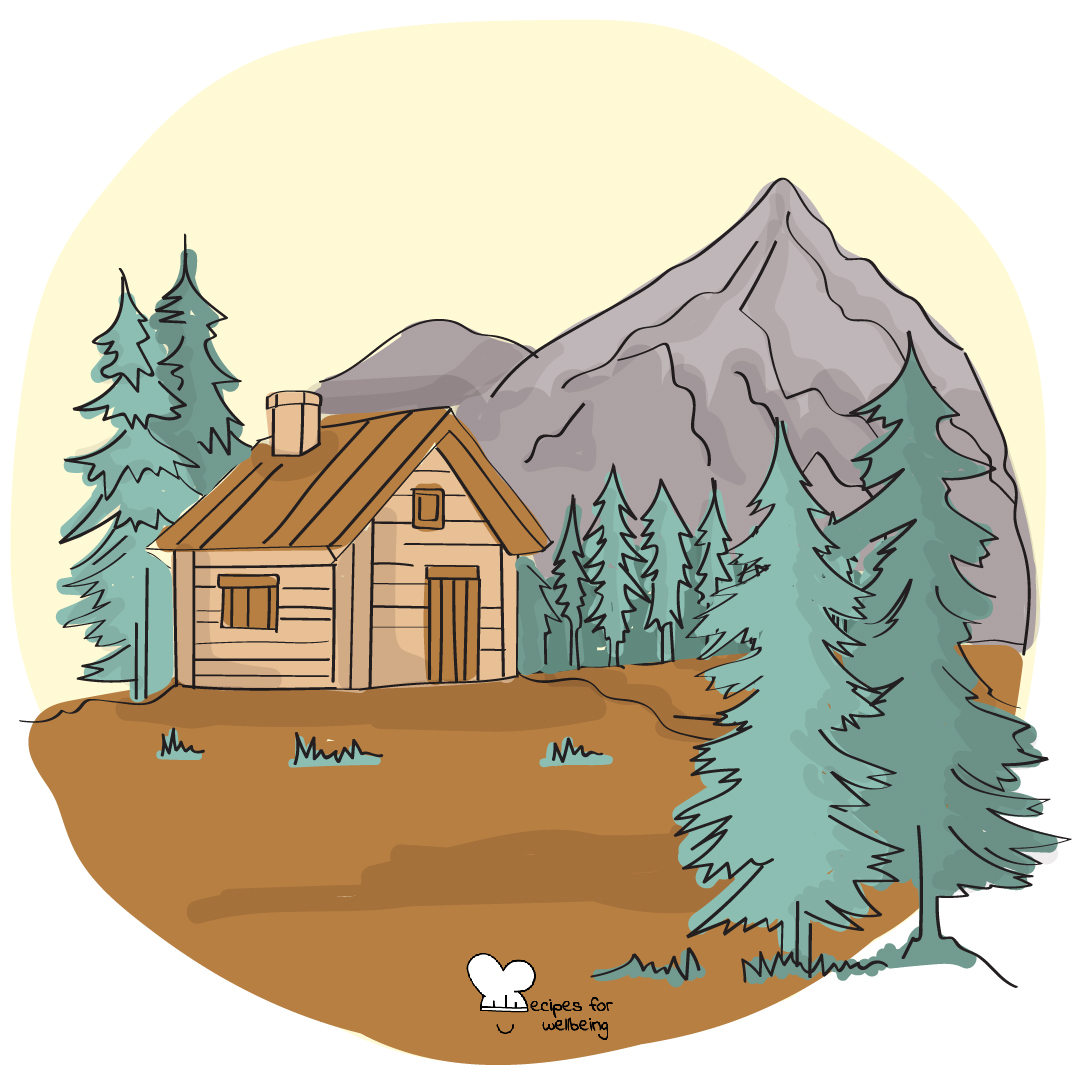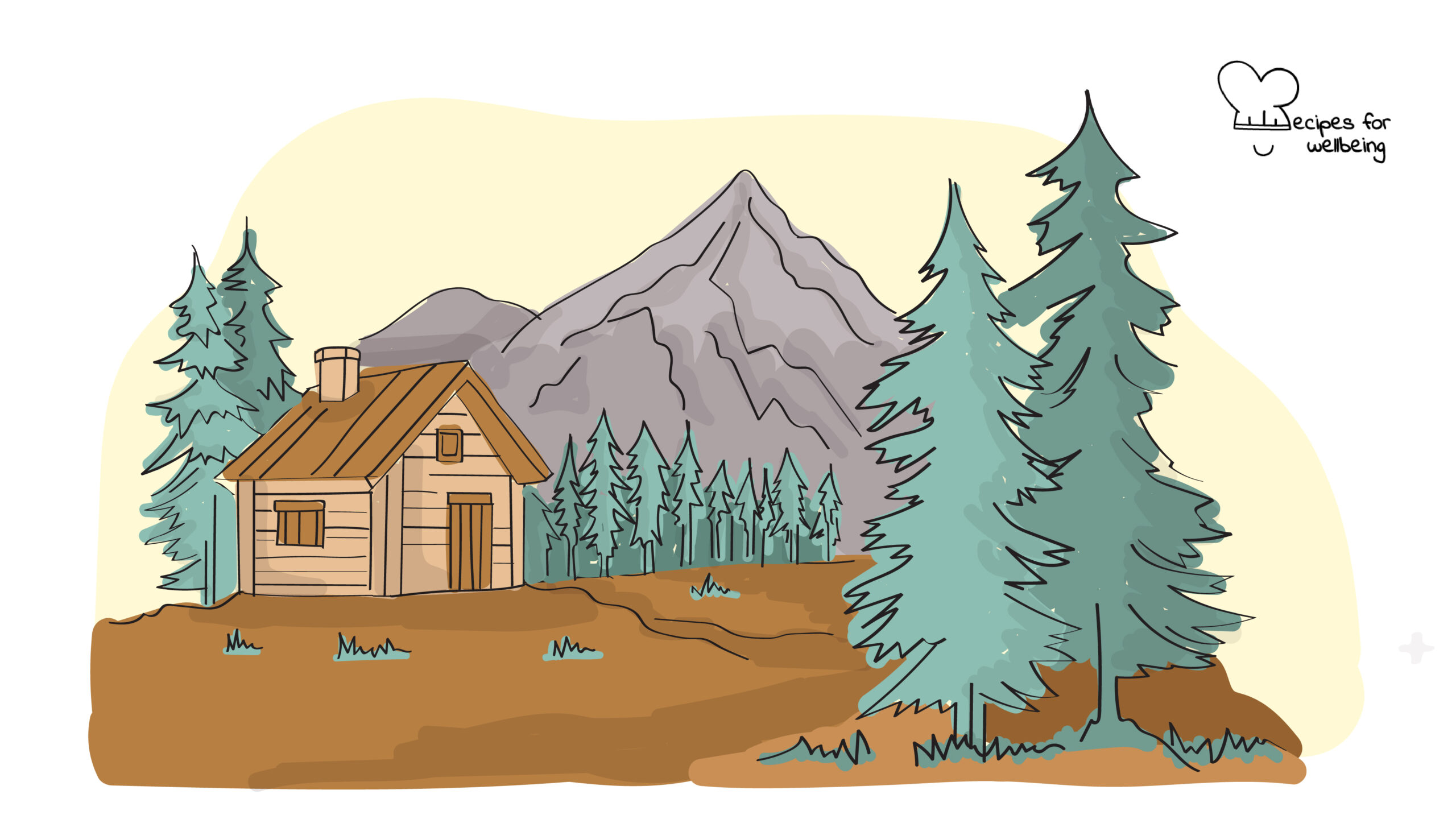
Finding your inner refuge
In a dark time, the eye begins to see. ―Theodor Röthke
👥 Serves: 1 person, 11-25 people, 2-10 people
🎚 Difficulty: Medium
⏳ Total time: 61-120 minutes
🥣 Ingredients: 1 pen, 1 journal (or a sheet of paper), “Writing to awaken” book by Mark Matousek (if you’re curious to find out more about it!)
🤓 Wholebeing Domains: Awareness, Positive Emotion, Ritualising
💪 Wholebeing Skills: Calm, Clarity, Contemplation, Hosting yourself, Journaling, Peacefulness, Reflection, Refuge, Solitude

Finding your inner refuge
📝 Description
An investigative writing practice to find refuge from fears and desires.
Do you ever experience loneliness? It feels empty and alienating. Is it possible to turn it into something more positive like solitude? As Mark Matousek writes, “solitude is rich, inspiring, and restful; replete with space and possibility.” As a changemaker dedicating most of your time to others, recognising that time alone is precious and it helps you find your inner refuge.
The following practice has been taken from Writing to Awaken: A Journey of Truth, Transformation, and Self-Discovery by Mark Matousek. In this book, the author invites you to investigate on yourself through expressive writing, guiding you along the path of awakening through radical truth-telling and self-inquiry. With targeted and revelatory questions, you’ll be prompted to explore your own personal narrative — to write honestly about your deepest wounds, greatest challenges, hidden gifts, yearnings, and opportunities for growth — in order to discover a deeply authentic understanding of yourself and move toward a more liberated, truthful life.
In particular, this exercise “shows how the atmosphere of your inner refuge affects your ability to do this writing practice. If your internal atmosphere is tense and threatening, you will have a harder time expressing the truth about your experience, even when it’s positive. If the atmosphere is relaxed and protected, you’ll have an easier time exploring your thoughts and feelings, including the contents of your shadow.” Below are five tools to cultivating and protecting your inner refuge:
- Practice regularly: If possible, write at the same time each day for at least five consecutive days a week.
- Make a nest: If possible, write in the same place — quiet and comfortable.
- Leave the outside world outside: Develop a meditation, yoga, breathing, or prayer practice to help you settle the mind and focus before writing.
- Emphasise love, not fear: Try to free writing from pain, self-judgement, or obligation.
- Enjoy your solitude: Learn to enjoy your own company.
•••
This recipe has been featured in our blog post “Questions to find your inner refuge” published on tbd* on 8 July 2020.
👣 Steps
Step 1 – Writing Part 1 (5’)
Take out a pen and a piece of paper. Imagine yourself in a solitary place, enjoying the silence. Imagine that your body is light and open, receptive to subtle thoughts and feelings. Then write for five minutes without stopping about a challenge you face in your life today.
Step 2 – Writing Part 2 (5’)
When time is up, take out another piece of paper. Imagine yourself somewhere stranded and alone, calling out, and no one answers-like a child abandoned in its crib. Feel that desolation and loneliness in your gut. Then write for five minutes without stopping about something that gives you a lot of joy.
Step 3 – Reflection Part 1 (10’)
Wander aimlessly until you feel called by something that draws your attention, by way of an attraction, a curiosity, an allurement, a repulsion, a fear. This might take some time. As you finish, notice how that exercise went. Was it hard for you to do? Did cognitive dissonance interfere with your ability to write about pain while feeling peaceful or joy while feeling lonely?
Step 4 – Dive deeper (60’)
Set aside an hour for this series of short writing exercises. Take ten minutes to explore each of the following topics. Try not to edit or re-read.
- Are you able to create a schedule and stick to it? Is regularity a challenge for you? How does this affect your life and writing?
- Are you someone who knows how to make a nest? Can you create comfort and protection in your life? How does this affect your life and writing?
- Do you have trouble unplugging? Is it hard to say “no” to the outside world? How does this affect your life and writing?
- Are you able to tolerate love without conflict, peace without internal agitation? Many people are unwittingly addicted to tumult, division, and upheaval. For writers, this can make practise a hell realm. Are you someone like this? If so, how does this affect your life and writing? If not, what tools do you use to defuse negative thinking?
- Does being alone make you feel lonely? Is solitude something you value? In your experience, what is the difference between these two states? Give examples. How does your attitude toward being alone affect your life and writing?

